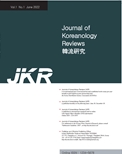 E-ISSN : 2950-8835
E-ISSN : 2950-8835
Abstract
HunMinJeongEum, meaning "the right sound to teach the people," was created in 1443 CE by King Sejong the Great, the fourth king of the Joseon Dynasty. In today's modern language, this letter, called Hangeul, is internationally recognized for its linguistic science. However, it is hard to find a comprehensive study on the fact that King Sejong himself created Hangeul, the Confucian perspective on natural disasters and democracy revealed in the process of writing, the independent efforts emphasized from a certain period, and the achievements of King Sejong, who shared the sorrow of the people and carried out national policies despite the extreme opposition of the nobility. Accordingly, I analyzed the consonants of HunMinJeongEum and looked at the essence of humanity and oriental philosophy (Yin-Yang Five Elements, Sangsu Philosophy, Hado). Surprisingly, different meanings from previous studies and interpretations were found, and King Sejong's "Da Vinci Code," which was left behind in the process of making the consonant, is reinterpreted and revealed. King Sejong's achievements were all connected as one. This is the root of democracy in the Republic of Korea today, and this is why King Sejong was selected as the most beloved and respected historical figure by the Korean people. This study will start with more people's understanding of the fundamental perception and philosophy of the world in Asia, including Korea, to reinterpret and reveal the hardships and great achievements experienced by a leader of a country in the process of creating korean alphabet, and to emphasize democracy, which is an important value for Asians and Westerners' mutual respect and co-prosperity.
- keywords
- HunMinJeongEum, King Sejong, Humanism, Geography, Climate crisis
- Downloaded
- Viewed
- 0KCI Citations
- 0WOS Citations













